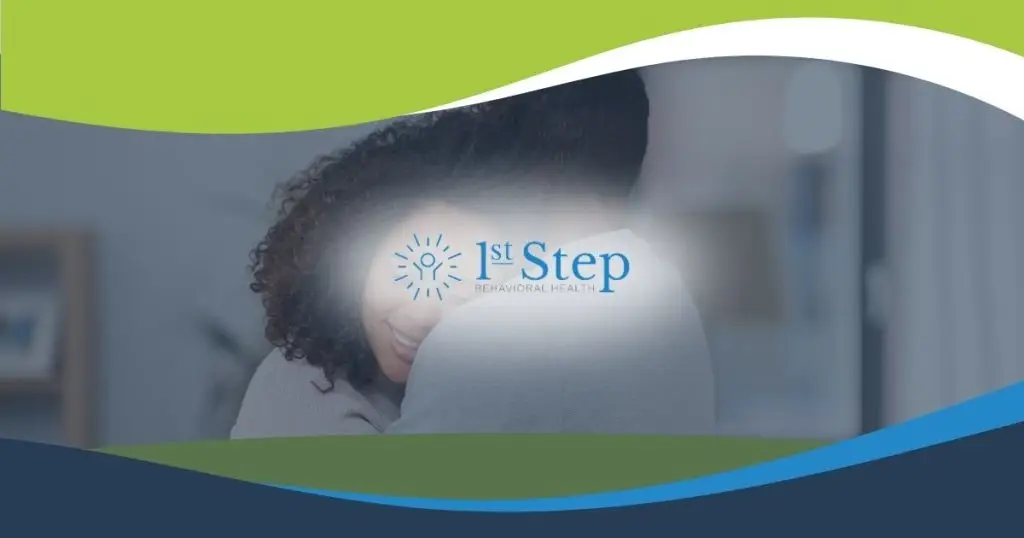Millions of people in the United States struggle with substance abuse and addiction. Living with drug and alcohol abuse takes a toll on your health and relationships. The effects of addiction can damage your emotional well-being, lead to severe complications, and keep you from functioning.
You don’t have to live with addiction for it to affect you. If your spouse struggles with substance abuse or addiction, their condition will impact your life in many ways.
No one chooses to live with addiction. Drug and alcohol addiction isn’t a character flaw or a moral failing. It is a complex condition that requires thoughtful, comprehensive treatment.
But how can you help an addicted spouse get the help they need? This guide will help you support a spouse who is struggling with addiction. You will learn how to convince your addicted spouse to start a treatment program that will help them regain control over their life.
Contact the First Step Behavioral Health specialists now to explore our substance abuse and mental health treatment programs. Our intake staff can answer your questions, verify your health insurance, or schedule an intake evaluation.
Does My Spouse Need Addiction Treatment?
The first step toward getting life-saving help is to recognize your loved one’s addiction. In some cases, it may be challenging to determine if your spouse has a substance use disorder (SUD). Knowing what to look for can help you identify a problem and seek the correct treatment.
Here are some common signs of alcohol or drug addiction:
- Your spouse lies or covers up their substance use
- They neglect their responsibilities, hobbies, and relationships
- They talk or think about using drugs or drinking a lot
- You notice changes in your spouse’s appearance, appetite, or sleep habits
- Your spouse has injured themself while under the influence of drugs or alcohol
- They isolate or only spend time with others who abuse drugs and alcohol
- Your spouse needs to drink more or use higher doses of drugs to get the effects they want
- They have legal or financial problems associated with their substance use
- They experience withdrawal symptoms if they stop drinking or using drugs
These signs may indicate your spouse is living with an addiction to drugs or alcohol.
Drug and alcohol abuse changes how the brain works. These changes make it very difficult for someone to choose to stop using drugs or drinking.
If your spouse is living with addiction, they require comprehensive, compassionate treatment from an addiction treatment center.
How Can I Convince My Spouse to Go to Rehab?
People with addiction must seek treatment in an addiction treatment facility that offers supportive, holistic programs. Mental health and medical specialists tailor plans to meet each person’s needs. Addiction treatment typically includes:
- Medically supported detox programs
- Individual therapy
- Mental health care
- Support groups
- Family therapy
- Relapse prevention education
- Holistic therapies like nutrition support, exercise, and mindfulness
- Aftercare planning
While you cannot force someone to attend rehab in most states, convincing your spouse to seek treatment may be possible.
Here are steps you can take to encourage your spouse to get help.
1. Learn about addiction
Learn as much as you can about addiction, treatment, and recovery. When you understand addiction as a disease, you will be able to help your spouse get the help they need to recover.
Read books about addiction. Connect with a substance abuse counselor. Attend Al-Anon or Nar-Anon meetings. Research local addiction treatment options or consult with a medical professional for help.
2. Plan an intervention
An intervention is a carefully planned event. Family and close friends gather to show support for an addicted person. Each person tells the addicted person how their substance abuse has impacted their lives. As a group, they attempt to convince the addicted person to seek treatment immediately.
Interventions are often successful, but it’s crucial to follow specific rules when planning one. Hire a professional intervention specialist to help you plan the most effective intervention.
3. Don’t wait
Without treatment, an addiction will get worse. People struggling with substance abuse often cannot make good decisions about their health and safety.
Don’t wait for an addiction to become life-threatening before seeking help. Act quickly so your spouse gets the help they need as soon as possible.
4. Take care of yourself
Supporting an addicted spouse can be incredibly challenging. You deserve to feel safe and supported. Take care of your own physical and mental health. Find support of your own.
Talk to friends or family members. Join a support group for people with addicted partners. Participate in individual counseling. You can find more resources on the Substance Abuse and Mental Health Services Administration (SAMHSA) website.
Practicing good self-care will help you continue to show up for your addicted spouse. Find the support you need to navigate this challenging situation.
Find Help for an Addicted Spouse
Contact the specialists at First Step Behavioral Health to explore our treatment programs. Our intake staff will be happy to answer your questions. They can verify your insurance, schedule appointments, or provide additional support.
Jump to a Section
Call (855) 425-4846
